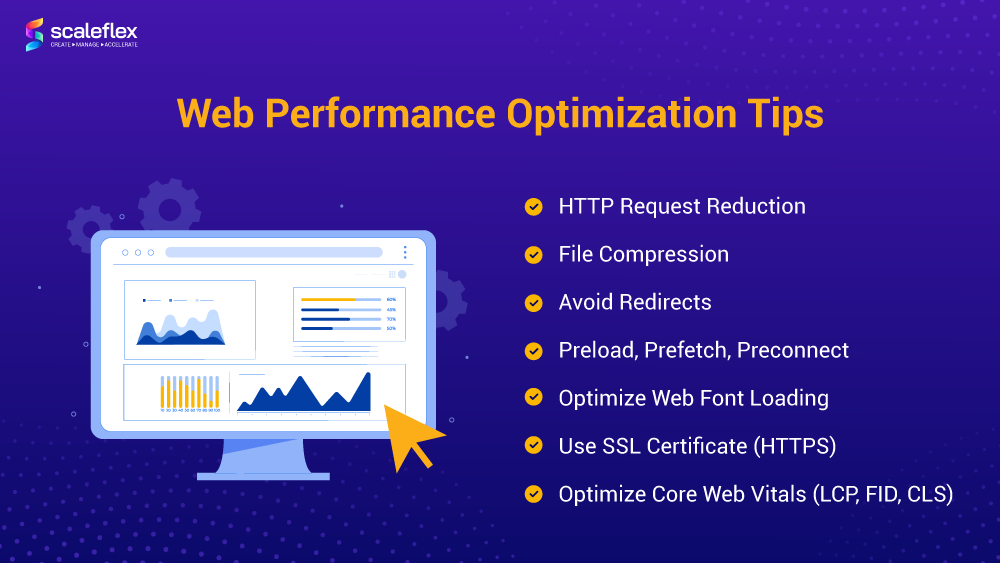Blitz News Digest
Stay updated with the latest trends and insights.
Boost Your Site's Speed and Watch Your Traffic Soar
Rev up your site's speed and skyrocket your traffic! Discover expert tips to enhance performance and attract more visitors now.
Top 5 Techniques to Optimize Your Website's Load Time
In today's fast-paced digital world, a website's load time is critical for providing an excellent user experience. Slow-loading websites can lead to increased bounce rates and diminished visitor satisfaction. To help you achieve optimal performance, here are the top 5 techniques to optimize your website's load time.
- Minimize HTTP Requests: Reduce the number of elements on each page to decrease the number of HTTP requests required. This can be achieved by using CSS instead of images where possible, consolidating files, and removing unnecessary scripts.
- Enable Compression: Use Gzip compression to reduce the size of your HTML, CSS, and JavaScript files. This greatly decreases the total download time, enhancing your website's speed.
- Optimize Images: Ensure that all images are compressed and properly sized for the web. Tools like image optimization plugins can help manage this easily.
- Leverage Browser Caching: By enabling caching, returning visitors can load your site faster as their browser can save some resources rather than downloading them again.
- Utilize a Content Delivery Network (CDN): A CDN distributes your content across multiple servers around the globe, ensuring that users load your website from the nearest server, which significantly boosts load speeds.

How Site Speed Influences Your SEO Rankings
In the ever-evolving landscape of SEO, site speed has emerged as a critical factor influencing your search engine rankings. A fast-loading website not only enhances user experience but also aligns with search engine algorithms that prioritize speed. Studies have shown that 53% of mobile users abandon sites that take longer than three seconds to load. This means that optimizing your site speed is not just a technical concern; it is essential for retaining visitors and reducing bounce rates, which can negatively impact your SEO efforts.
Moreover, site speed affects how search engines crawl and index your website. When a site takes longer to load, search engine bots may struggle to access all its pages, leading to incomplete indexing. To improve your site's performance, consider implementing strategies such as image optimization, leveraging browser caching, and minimizing HTTP requests. By prioritizing site speed, you not only cater to the demands of modern internet users but also enhance your chances of climbing the SERP rankings.
Is Your Website Slow? Common Reasons and Quick Fixes
If you find that your website is slow, it can significantly impact user experience and search engine rankings. Several common reasons could be contributing to this sluggishness. First, large image files and unoptimized multimedia content can slow down loading times. To fix this, consider compressing images and using the appropriate formats such as WebP. Additionally, an excessive number of plugins and scripts can bog down your site. Regularly audit your plugins and remove those that are unnecessary or outdated to improve speed.
Another potential reason behind slow website performance is inadequate server resources. If your hosting plan is not equipped to handle your traffic, consider upgrading to a more robust solution, such as a dedicated server or a VPS. Caching is also a vital tool; implementing caching solutions can drastically reduce load times. Lastly, make sure to enable browser caching, which stores certain files on users' devices for quicker access on return visits. By addressing these issues, you can enhance your site's speed and improve visitor satisfaction.